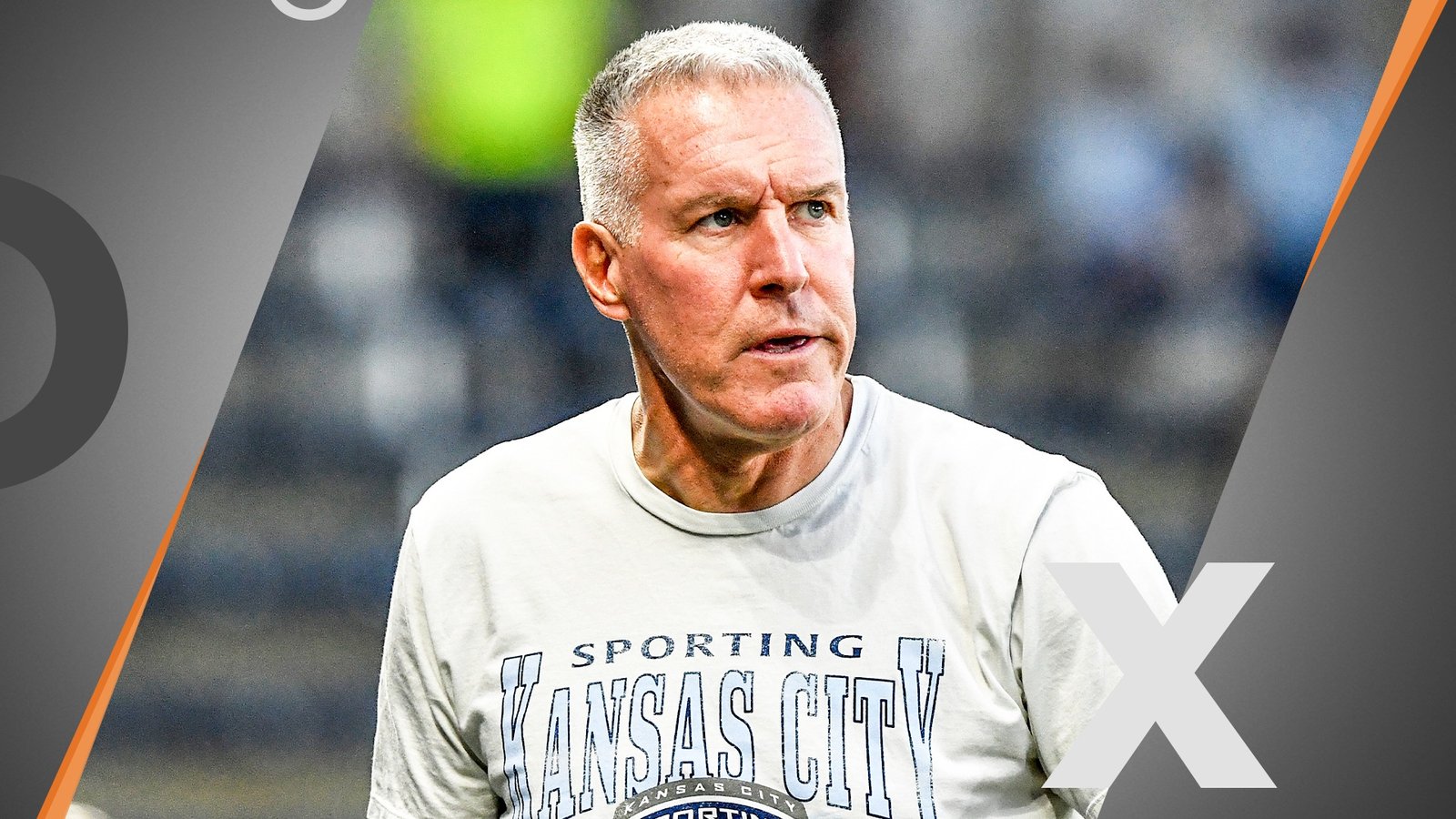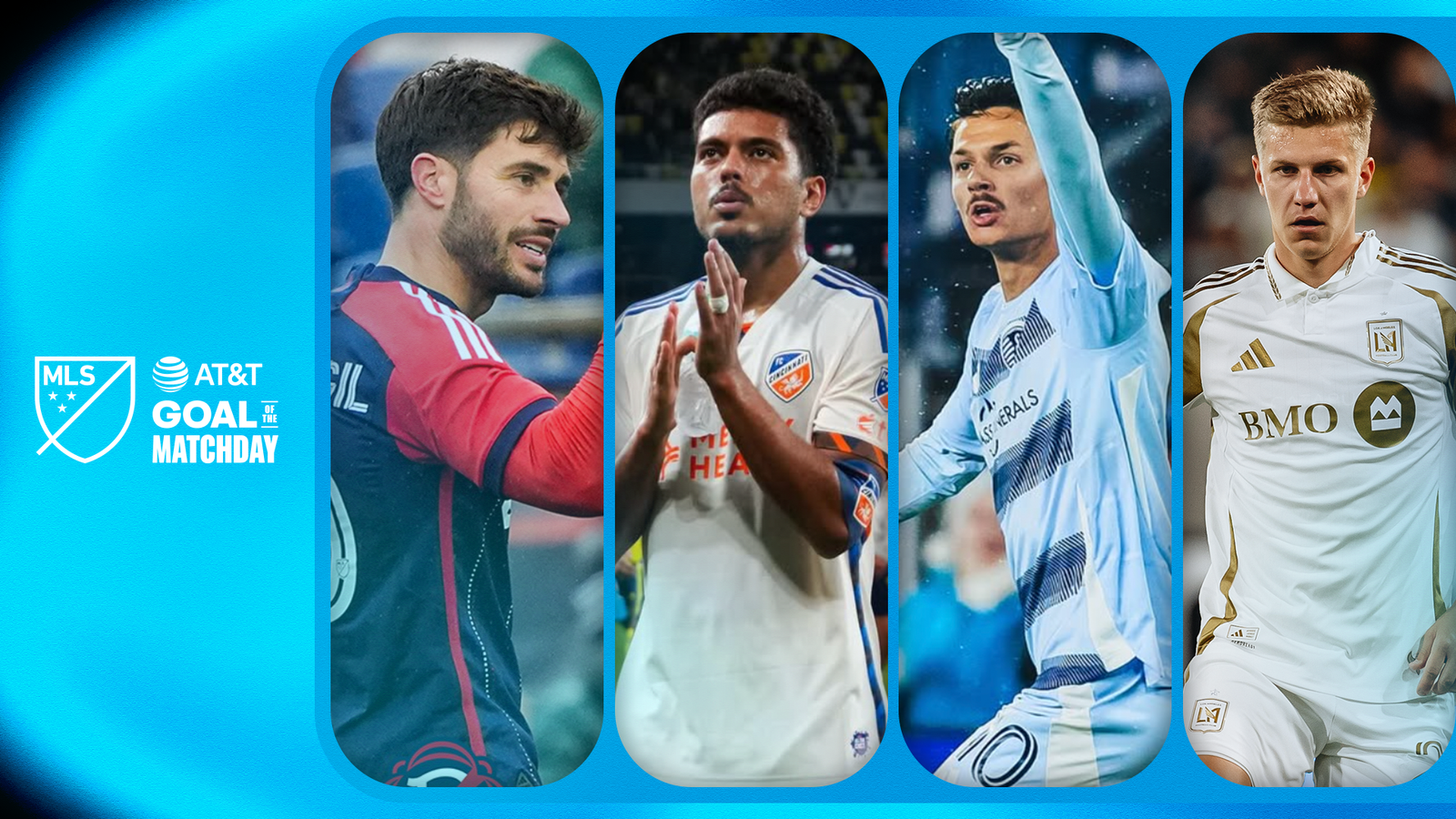Let me give you some data on Peter Vermes, the now-former manager of Sporting Kansas City:
- One MLS Cup trophy (2013)
- Three US Open Cup trophies (2012, 2015, 2017)
- Four first-place finishes in the regular-season conference standings
- Seven seasons at 1.5 ppg or higher (the club had three total before he took over)
- 5,718 days as manager of Sporting KC
- 6,722 days as technical director of Sporting KC
I think it’s fair to say that Vermes is more strongly associated with Sporting – more important to their history and their identity, and literally everything good that’s happened to them – than any other player/coach/executive is with any other club in MLS history. I’m not even sure there’s anyone else with an argument.
And so even though Sporting have gone winless in 13 games across all competitions since September 2024, and even though they have looked like the worst team in the league to start 2025, and even though it sure seems like they’re destined to miss the Audi MLS Cup Playoffs for the third time in four years despite adding two Designated Players this winter, it still comes as a shock that he was dismissed by KC ownership today, as first reported by Tom Bogert of GiveMeSport.
Sporting KC icon
It seemed like Vermes, who was under contract through 2028, would be with this team forever. He’d taken over in the front office when they were still the Wizards and built a near-dynasty throughout his first couple of years in charge.
The most famous win was the 2013 blood-and-guts MLS Cup triumph over Real Salt Lake in the freezing cold, but the most important might’ve been a summer 2010 friendly vs. Manchester United. 52,424 fans – a record attendance for soccer in Kansas City at the time, and most of them were wearing red – came out to Arrowhead Stadium that day expecting to see the local side marched out as sacrificial lambs.
Instead, Kei Kamara and Davy Arnaud (two guys who would have a key role in launching Sporting into their decade of excellence) got on the board in a 2-1 win.
What truly set the game apart, however, was the noise and passion generated by fans. Though many came to the stadium donning United red, all supporters were pulling for an upset in the latter stages. …
To this day, the Manchester United friendly is seen as an instrumental juncture in team history, proving that Kansas City had a tremendous appetite for soccer and that the sport was here to stay.
I am generally dismissive of the efficacy of mid-season friendlies against preseason Euro teams. But there is zero doubt this win in front of that crowd more or less put Sporting on the map locally. To his eternal credit, Vermes then took that core and built it into a team that would compete at or near the top of the conference for the next decade.
In the process, they opened a gorgeous new stadium, set a league record for consecutive wins to start a season (seven, in 2012) and became the first truly modern, high-pressing team in MLS. Sporting games looked and felt different because of that press – Vermes might be the single most important tactician in league history, the one who most comprehensively changed the MLS meta – and they won on their terms, year after year after year.
They also won during an era in which the dominant teams were the LA Galaxy of Landon Donovan, David Beckham and Robbie Keane, or the Seattle Sounders of Clint Dempsey and Obafemi Martins. Big, big names.
Roster hits & misses
Sporting KC’s best players? SuperDraft picks Matt Besler, Graham Zusi and Roger Espinoza. They found other guys like Chance Myers and Dom Dwyer via the SuperDraft as well, or picked up players like Kamara, Benny Feilhaber, Seth Sinovic and Tim Melia off the scrap heap. A few years later, near the tail end of the almost-dynasty, they’d do it again with Ike Opara.
That talent identification and development was, more than anything else, what made Sporting into what could be argued as the model club of the 2010s. They got results on a budget, year after year after year after year. And they kept getting results because Vermes was so good at finding and developing talent where others failed to look.
Let me give you some other data on Vermes:
- With Besler in the lineup (from 2009-20): 438 points in 276 games, 1.58 ppg
- Without Besler during those years: 120 points in 93 games, 1.29 ppg
- Since Besler left: 174 points in 142 games, 1.2 2ppg
With or without you (WOWY) numbers are always a little wonky in our sport, and there’s some missing context here – Besler’s 12 seasons lined up almost exactly with Zusi’s and Espinoza’s, and he was lucky enough to have Aurélien Collin or Opara alongside him for most of those appearances, with Ilie Sánchez or Uri Rosell in front of him. It’s never just one guy in our sport.
But center back is the crucial spot in the modern game, and is exponentially more crucial for a team that wants to both press and possess. You have to play a high line, and you have to be organized, and when you win the ball you have to have the ability to instantly move the game into good spots. Besler did all of that at an elite level for both club and country (there’s a reason he started over Tim Ream – another excellent, left-footed passer of the ball – for years, folks), and over the past five years there has been no replacing him.
Sporting’s press failed as the backline failed, and their ability to control games failed as the press failed. The tactical advantage that Vermes had built and implemented in the 2010s fell apart by the early 2020s.
Here’s one more set of data:
- 2007 SuperDraft: Michael Harrington (mostly forgotten now, but he’d play 162 games across all comps for Sporting over six seasons)
- 2008 SuperDraft: Myers and Espinoza
- 2009 SuperDraft: Besler and Zusi
- 2010 SuperDraft: Teal Bunbury
- 2011 SuperDraft: C.J. Sapong
- 2012 SuperDraft: Dom Dwyer
All-Stars, Best XIs, Rookies of the Year, World Cup starters, national teamers. Vermes’ first six years in charge were maybe the greatest six-year SuperDraft run in MLS history. Since then, just as Sporting were hitting the peak of their near-dynasty, they haven’t added a single starter via the SuperDraft, and only two semi-regulars (Saad Abdul-Salaam in 2015 and Stephen Afrifa in 2023).
So like that, the player acquisition tool Vermes had put to best use in building the near-dynasty dried up. Suddenly, there was no steady influx of young talent to develop and insert into the XI, or at least into the gameday roster. And because of that, there was more and more pressure to get the imports right.
They mostly haven’t been. Joaquín Fernández, brought in last summer, has not fixed the defense, and Manu García, brought in this winter, has not fixed the midfield. Before them, it was Dany Rosero, Nemanja Radoja, and Rémi Walter. Before them, it was Robert Voloder and José Mauri. Before them, it was Nicolas Isimat-Mirin and Yohan Croizet.
There were some hits in there as well, of course – Johnny Russell is a Sporting KC legend, as is Ilie – but those came fewer and further between as the years went along. And with the losses piling up, and the pipeline of young talent mostly barren (though there is starting to be some hope with the academy), it’s been hard to see a clear path forward. I think, mostly, there isn’t one.
Moving on
And so ownership made the call. Vermes, of course, was gracious.
“It would be hard to list all of the people I want to thank after 20 seasons in managerial positions at Sporting Kansas City,” Vermes said in a press release issued by the team. “I am thankful to everyone, especially ownership, for giving me the opportunity of being a steward of this club for the past two decades. I wish the club nothing but the best in the future.”
Vermes built it and left it in much better shape than when he found it. He’s carved his name into the record books in so many ways that it’s almost impossible to do it justice in one column. How do you adequately fete a guy who not only saved a club but modernized the tactical approach of an entire league?
I don’t quite have the words, so I guess that’s where we’ll leave it. Sporting fans, this weekend, understandably called for Vermes’ ouster. It’s a results-based business, and the results weren’t coming (they hadn’t for a while). I don’t blame them for wanting a new era to arrive ASAP.
But take a minute to appreciate the old one. Vermes put together something incredibly special in KC, and the entire league’s better off because of it.











